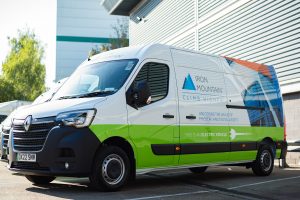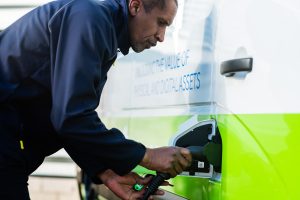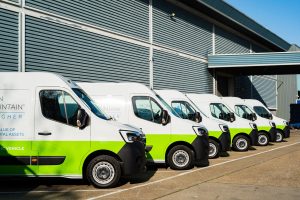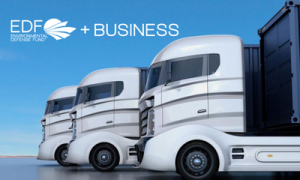The road to zero: how one company began their journey to fleet electrification
Today, the private sector faces a critical crossroad for climate action. On the heels of the passage of the Inflation Reduction Act, the United States must make an unprecedented economic and energy transition, and businesses must ramp up their climate and sustainability initiatives to meet this demand. For companies that own and operate medium and heavy duty trucks, the path to fleet electrification provides a high impact opportunity to intrinsically reshape the environmental impact of their operations.
A recent EDF analysis demonstrates that nearly 200 fleets are either running zero-emission trucks today or have them on order — a nearly 1100% increase since 2017. However, the rapid rate of transformation to electric fleets can make it challenging for organizations to keep up. EDF published “4 actions fleets must take to be sustainability leaders today”, which outlines the key milestones for fleet transformation. And while frameworks and step-by-step matrices are helpful as fleets begin their electric truck transformation, seeing the transformation in action is powerful.

Below, see how one company began their fleet electrification journey.
For over 70 years, Iron Mountain has been in the business of storing, protecting and managing assets–both physical and digital. A storage business turned global enterprise, the company now provides services to top companies globally, and commands a fleet of over 5,000+ vehicles in 60+ countries. So when the company decided to become 100% carbon neutral by 2040, it became clear that they would need to electrify their fleets.
Making the commitment
Iron Mountain made their first public commitment to become a zero emission fleet in 2021 when they joined the Climate Pledge and committed to achieving net-zero carbon emissions by 2040. The company had integrated carbon mitigation and energy efficiency practices over the years, most of which addressed greenhouse gas emissions from their buildings. They deployed renewable energy infrastructure such as solar, including a plan to shift to 100% carbon-free electricity. The next logical piece in the decarbonization puzzle was to address emissions from their significant fleet operations. For Iron Mountain, this was a natural next step on their road to net-zero. Ultimately, the move is good for the planet and also good for business. The efficiencies of operating and maintaining electric vehicles paired with the lower cost of electricity translated into significant total-cost-of-ownership benefits. Lastly, the company wanted to get ahead of any future restrictions on climate emissions and has ambitions to be a leader in the EV space.
The plan for transformation

Iron Mountain participated as a host for EDF’s Climate Corps fellowship program, which pairs trained graduate students with companies determined to meet their climate and energy goals. Fellows placed in the summers of 2020 and 2021 at Iron Mountain analyzed market readiness for EV adoption, examined the incentives landscape, provided a cost-benefit analysis of electrifying their fleets, and helped construct a regional deployment strategy. From those learnings, Iron Mountain developed achievable milestones in their journey towards fleet electrification. The first milestone was based on regional goals, and the team decided to begin by electrifying their fleets in Europe with 24 vans now already in operation. Furthermore, they successfully launched their ‘Fleet of the Future’, a cohort of 12 vans deployed in London in May 2022, which was their largest deployment in a single location to date.
That launch will be followed by planned deployments in other European nations, and an upcoming launch in the United States. These will be followed by successive fleet electrification plans in Asia and Latin America along their roadmap as these markets mature.
Looking forward
The journey of Iron Mountain serves as a blueprint for other fleets to emulate and jump start their fleet electrification journey. On the pathway towards decarbonizing the world’s roads, first-to-electrify fleets like Iron Mountain lay the groundwork of learnings, lessons and best practices for other fleets. Most importantly, Iron Mountain’s story proves that collaboration and cooperation between industry players will be the key to meet the 1.5C targets.

